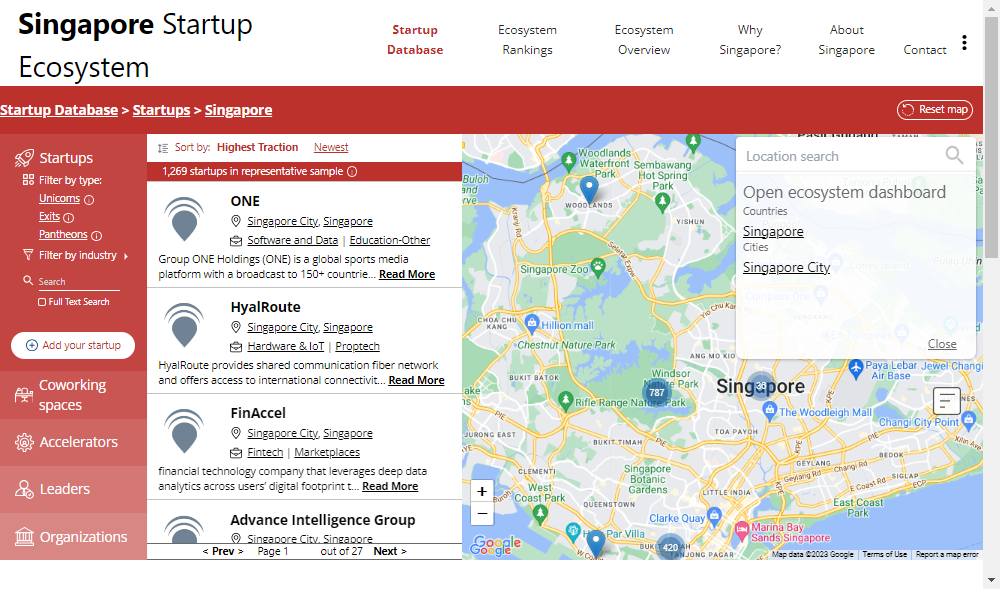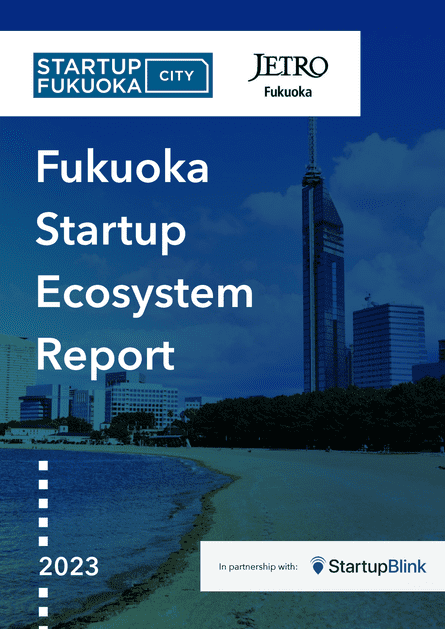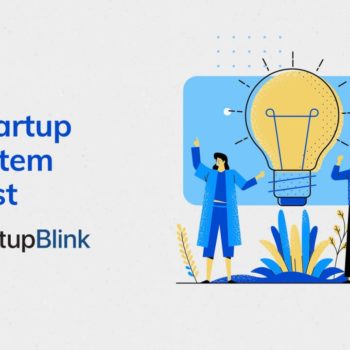Understanding what the strengths of your ecosystem are is a crucial point for startup ecosystem promotion, attracting talent and investors to your location. Location can have a major impact on the success and growth of both investors and startups. The right location can benefit investors from access to a large and growing market to a skilled and talented workforce. On the other hand, startups may be drawn to locations with strong support networks and resources and a high quality of life for employees. In this article, we’ll examine the key considerations for investors and startups when it comes to making decisions about investment and relocation and what you can do as an ecosystem developer to promote the strengths of your ecosystem.
At StartupBlink, we help startup ecosystems to better promote their strengths with various different techniques. You can further discover how we can help you to promote your ecosystem on this page.
Based on our expertise, here are our 6 recommendations to promote your ecosystem:
1. Identify the policies and incentives that make your city attractive for startups
When choosing the best location for investment, launch, and growth, red tape and bureaucracy can be challenging for startups and investors. As a startup ecosystem developer, you need to be able to highlight the policies and government incentives that make your city attractive for entrepreneurs or investors. If your location has favorable policies and regulations, particularly those that provide specialized benefits such as tax breaks, visas, grants, and laws for startups, these are extremely valuable components for startup ecosystem promotion, make sure to let potential entrepreneurs from all over the world know about it.
2. Pinpoint the startup ecosystem support facilities in your area
It is essential to have a holistic view of your startup ecosystem to make informed decisions that will support and promote the growth of new businesses in your location. One key aspect is the availability and accessibility of resources and support for startups. This includes pinpointing coworking spaces, accelerators, incubators, and NGOs providing entrepreneurs with resources and support. A strong network of these organizations can help startups access the resources and support they need to succeed and grow. It can also be a powerful draw for entrepreneurs starting a business in your location.
A startup ecosystem is a brand itself. This means thinking about branding and marketing strategies to effectively communicate your ecosystem’s strengths and unique selling points to potential entrepreneurs and investors. By creating a robust and consistent brand and messaging that highlights the resources and opportunities available in your region, you can position your ecosystem as a destination of choice for entrepreneurs and investors. StartupBlink offers ecosystem portals uniquely designed for your ecosystem, mapping ecosystem stakeholders, key incentives, and opportunities available in the ecosystem.
3. Host startup ecosystem events

Hosting startup conferences can be a powerful tool for bringing together ecosystem stakeholders in your city or country, positioning your ecosystem as a top destination for innovation, and providing entrepreneurs with an environment to network, pitch their ideas, and grow. In other words, it is an activity that ecosystem developers can use to promote the startup ecosystem.
On a global scale, it’s a valuable opportunity for foreign entrepreneurs to learn about your region’s resources and opportunities and connect with local entrepreneurs and stakeholders. This can foster cross-border collaboration and create new business opportunities. By hosting startup conferences, you can build a strong and diverse ecosystem that can attract and retain entrepreneurs and investors worldwide, drive economic growth and create jobs in your region.
4. Showcase your Talent Pool for Startup Ecosystem Promotion
Talent and startup ecosystem development are inseparable from each other. A strong talent pool can provide a startup with the expertise and resources it needs to innovate and succeed. This is especially important in industries that require a high level of specialized knowledge or expertise, such as technology and healthcare. For example, a startup in the biotech industry may choose to locate in a region with a strong cluster of research institutions and universities to access a talented pool of scientists and engineers.
Similarly, an investor may look for opportunities in locations with a strong track record of producing successful and innovative companies, such as Silicon Valley or the Massachusetts Institute of Technology (MIT) Innovation District, to tap into the region’s wealth of talent and expertise.
However, as long as you do not highlight the capabilities of the talent pool, it will just benefit the existing companies. Moreover, in the long run, your ecosystem may experience brain drain because limited job opportunities are available for the workforce. Hence, it is critical to share your talent resources with the world and invite them to invest in your ecosystem.
5. Highlight the success stories in your ecosystem

Highlighting success stories within your startup ecosystem can serve as inspiration for other entrepreneurs and help to showcase the potential of your ecosystem. By sharing information about successful exits and unicorns, you can demonstrate that success is possible within your ecosystem.
One way to do this is by regularly featuring these stories on your social media channels or hosting a podcast dedicated to sharing the success stories of your ecosystem. This helps promote your ecosystem, encourages other startups to strive for success, and highlights the opportunities available. By sharing these stories, you can help to create a culture of success within your ecosystem and attract more entrepreneurs, investors, and talent to your area.
6. Communicate regularly about the new developments in your ecosystem
Communicating effectively and keeping stakeholders updated on the state of your ecosystem is one of the most important aspects for an ecosystem developer. After you have identified the attractive policies, the stakeholders, the talent, and the suitable events in your ecosystem, you need to make sure that they stay connected and know the reasons to celebrate in their ecosystem.
A powerful tool for communication is the Startup Ecosystem Reports which focus on startup ecosystem promotion. These reports focus on the strengths and critical sectors of an overperforming ecosystem. It is a great way to showcase how your ecosystem is unique. They can also be used as a lead generation tool that would capture entrepreneurs looking to relocate or set up a business and investors searching for the right opportunity. Our reports on the startup ecosystem of Catalonia, Fukuoka or Taiwan are just a few real-life examples of how you can showcase opportunities and resources available in your ecosystem.
Case Study: Estonia
Estonia, a small country with less than 2 million people, is a successful case for startup ecosystem promotion. Skype’s early success gave them an “initial product,” but low startup activity persisted due to limited investors and entrepreneurs. To overcome this, Estonia employed creative marketing, introduced e-residency and the Nomad Visa, generating more startups like Pipedrive, Bolt, and Transferwise. Even though some startups left, Estonia’s global narrative as a “digital nation” boosted the ecosystem. Balancing reality and perception is crucial, as sustainable growth depends on both innovative marketing and product development. Now, Estonia thrives as an attractive destination for startups and entrepreneurs worldwide.
Case Study: Israel
Israel’s “startup nation” reputation stems from a private sector-driven success story, unintentionally creating the world’s most substantial accelerator. The cultural narrative of risk-taking and entrepreneurship further propelled its thriving ecosystem. Unlike micromanaging, the public sector supported organic growth, allowing startups to flourish.
The success of Israeli startups attracted investors and entrepreneurs, solidifying the nation’s image as a startup hub. Late to the game, the public sector started actively marketing the ecosystem’s advantages.
The combination of private sector ingenuity, a risk-taking culture, and supportive public sector positions Israel as a top destination for startups. Its “startup nation” identity continues to attract global attention, making Israel a powerhouse in the world of innovation.
How to attract top startups and investors to your location?
Attracting top startups and investors to your location requires communicating the strengths and opportunities in your ecosystem.
At StartupBlink, we offer Promotional Reports that showcase your startup ecosystem and highlight why your location is the best place to relocate or invest. These comprehensive reports provide an in-depth overview of your resources, support facilities, regulatory environment, talent, success stories, and overperforming industries to help you stand out from the competition.
Moreover, we can work together to promote your ecosystem in StartupBlink’s Global Startup Ecosystem Index with a case study and on webinars, podcasts, newsletters, and more, as well as deploy our assets such as a newsletter with tens of thousands of subscribers and website with thousands of daily visitors to promote your ecosystem specific initiatives.










